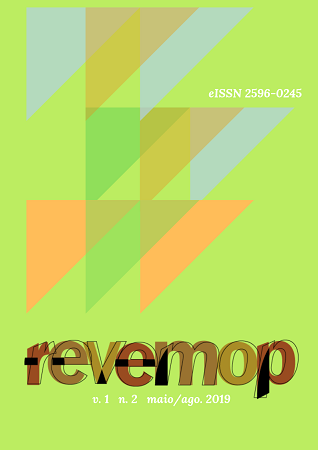Rendimiento del sentido numérico de futuros profesores primarios en Taiwán
Resumen
Para examinar el rendimiento numérico de los futuros docentes, se seleccionaron para participar en este estudio doscientos ochenta futuros maestros que se especializaron en enseñanza elemental en una institución de capacitación de maestros en el sur de Taiwán. Los resultados mostraron que aproximadamente una quinta parte de los maestros potenciales podrían aplicar el método basado en el sentido numérico (como el uso de puntos de referencia o la estimación de manera apropiada) y aproximadamente la mitad de los maestros prospectivos se basaron en métodos basados en reglas cuando respondían a preguntas numéricas. Los resultados también indicaron que estos futuros docentes se enfocaron en el método escrito para resolver los problemas de sentido numérico. Es razonable creer que si queremos mejorar el sentido numérico de los estudiantes, entonces una acción importante que se debe tomar es mejorar la calidad del conocimiento de sus maestros sobre el sentido numérico.
Descargas
Citas
ANGHILERI, Julia. Teaching number sense. Trowbridge. Wiltshire: Cromwell Press Ltd, 2000.
BALL, Deborah Loewenberg; BASS, Hyman. Making Mathematics Reasonable in School. In: MARTIN, Gary. (Ed.). Research Compendium for the Principles and Standards for School Mathematics. Reston, VA: NCTM, 2003, p. 27-44.
BALL, Deborah Loewenberg; HILL, Heather C.; BASS, Hyman. Knowing mathematics for teaching: Who knows mathematics well enough to teach third grade, and how can we decide? American Educator, v. 30, n. 3, p. 14-17, 20-22, 43-46, fall. 2005
BERCH, Daniel B. Making sense of number sense: Implications for children with mathematical disabilities. Journal of Learning Disabilities, v. 38, n. 4, p. 333-339, jul./aug. 2005.
CRAMER, Kathleen A.; POST, Thomas R.; DELMAS, Robert C. Initial fraction learning by fourth-and fifth- grade students: A comparison of the effects of using commercial curricula with the effects of using the rational number project curriculum. Journal for Research in Mathematics Education, v. 33. n. 2, p. 111-144, mar. 2002.
DUNPHY, Elizabeth. The primary mathematics curriculum: Enhancing its potential for developing young children’s number sense in the early years at school. Irish Educational Studies, v. 26, n. 1, 5-25, feb. 2007.
GRAEBER, Anna O.; TIROSH, Dina. Insights fourth and fifth graders bring to multiplication and division with decimals. Educational Studies in Mathematics, v. 21. n. 6, p. 565-588, dec. 1990.
GREER, Brian. Nonconservation of multiplication and division involving decimals. Journal for Research in Mathematics Education, v. 18. n. 1, p. 37-45, jan. 1987.
HILL, Heather C.; SCHILLING, Stephen G; BALL, Deborah Loewenberg. Developing measures of teachers’ mathematics knowledge for teaching. Elementary School Journal, v. 105. n. 1, p. 11–30. Sep. 2004.
HILL, Heather C.; SLEEP, Laurie; LEWIS, Jennifer; BALL, Deborah Loewenberg. Assessing Teachers’ Mathematical Knowledge: What Knowledge Matters and What Evidence Counts? In: FRANK, Lester. (Ed.). Second Handbook of Research on Mathematics Teaching and Learning. Charlotte, NC: Information Age Publishing, 2007. p. 111–155.
JORDAN, Nancy C.; GLUTTING, Joseph; RAMINENI, Chaitanya. The importance of number sense to mathematics achievement in first and third grades. Learning and Individual Differences, v. 20. n. 2, p. 82-88, apr. 2010.
LESH, Richard; LAMON, Susan J. Assessing authentic mathematics performance. In: RICHARD, Lesh; SUSAN J. Lamon. (Ed.). Assessments of Authentic Performance in School Mathematics. Washington, DC: American Association for the Advancement of Sciences Press, 1992, p. 17-62.
MA, Liping. Knowing and teaching elementary mathematics: Teachers’ understanding of fundamental mathematics in China and the United States. Mahwah, NJ: Lawrence Erlbaum, 1999.
MARKOVITS, Zvia; SOWDER, Judith. Developing number sense: An intervention study in grade 7. Journal for Research in Mathematics Education, v. 25. n. 1, p. 4-29, jan. 1994.
MCINTOSH, Alistair; REYS, Barbara J; REYS, Robert E; BANA, Jack., FARREL, Brian. Number Sense in School Mathematics: Student Performance in Four Countries. Mathematics, Science & Technology Education Centre, Edith Cowan University, 1997.
MCINTOSH, Alistair; REYS, Barbara J; REYS, Robert E. A proposed framework for examining basic number sense. For the Learning of Mathematics, v. 12. n. 3, p. 2-8, nov. 1992.
NATIONAL COUNCIL OF TEACHERS OF MATHEMATICS (NCTM). Principles and standards for school mathematics. Reston, VA: NCTM, 2000.
ORGANIZATION FOR ECONOMIC CO-OPERATION AND DEVELOPMENT (OECD). Learning for tomorrow’s world: First results from PISA 2003. Paris, France: OECD, 2004.
REYS, Robert E.; YANG, Der-Ching. Investigating the development of number sense in a 6th grade class in Taiwan. Nordic Studies in Mathematics Education, v. 10. n. 1, p. 43-55. 2005.
REYS, Robert E.; YANG, Der-Ching. Relationship between computational performance and number sense among sixth- and eighth-grade students in Taiwan. Journal for Research in Mathematics Education, v. 29. n. 2, p. 225-237, mar. 1998.
SCHIFTER, D. Reasoning about Operations: Early Algebraic Thinking in Grades K-6. In: LEE, Stiff V. (Ed.). Developing Mathematical Reasoning in Grades K-12, 1999 Yearbook of NCTM. Reston, VA: NCTM, 1999, p. 62-81.
SOWDER, Judith. Estimation and Number Sense. In DOUGLAS A. Grouws. (Ed.). Handbook of Research on Mathematics Teaching and Learning. New York, NY: Macmillan, 1992, p. 371-389.
VERSCHAFFEL, Lieven; GREER, Brian; DE CORTE, Erick. Whole Number Concepts and Operations. In: LESTER JR., F. (Ed.). Second Handbook of Research on Mathematics Teaching and Learning. Charlotte, NC: Information Age Publishing, 2007, p. 557-628.
YANG, Der-Ching; LI, Mao-Neng. Assessment of animated self-directed learning activities modules for children’s number sense development. Journal of Educational Technology and Society, v. 16. n. 3, p. 44-58, jul. 2013.
YANG, Der-Ching; REYS, Robert E. Fractional number sense strategies possessed by sixth grade students in Taiwan. Hiroshima Journal of Mathematics Education, v. 10. n. 3, p. 53-70, dec. 2002.
YANG, Der-Ching. Developing number sense through real-life situations in school. Teaching Children Mathematics, v. 13. n. 2, p. 104-110, sep. 2006.
YANG, Der-Ching. Investigating the strategies used by pre-service teachers in Taiwan when responding to number sense questions. School Science and Mathematics, v. 107. n. 7, p. 293-30, nov. 2007.
YANG, Der-Ching. Teaching and learning number sense – An intervention study of fifth grade students in Taiwan. International Journal of Science and Mathematics Education, v. 1. n. 1, p. 115-134, mar. 2003.






























